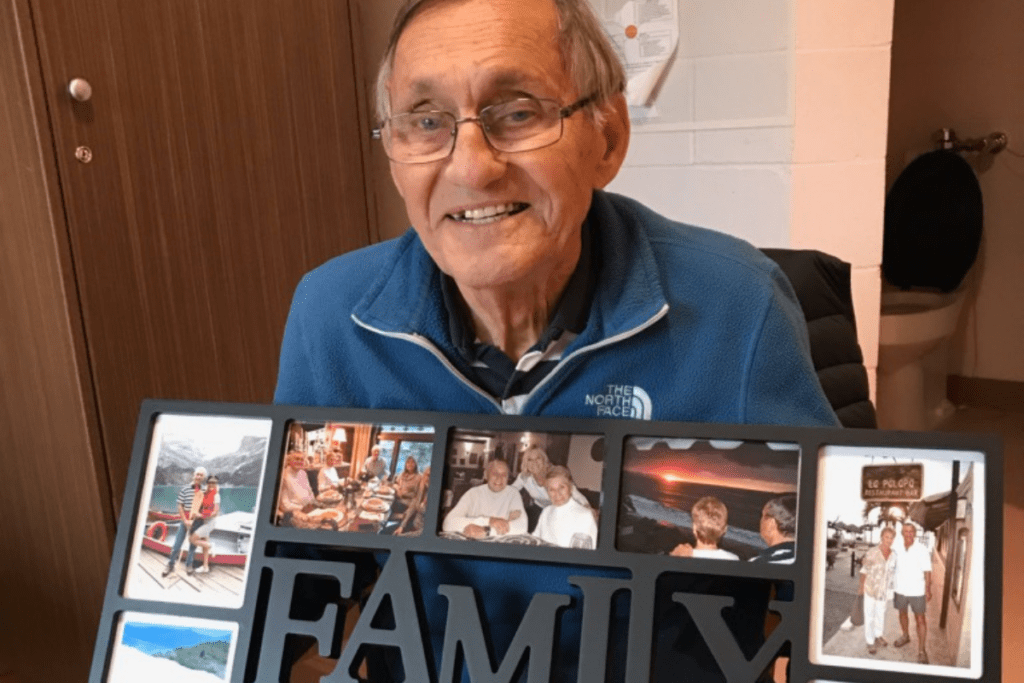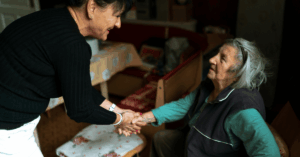‘You’re the best!’, ‘Good job!’, ‘We love you!’— simple words of validation can be a powerful tool to uplift, inspire and motivate. Yet, using words is just one way of helping boost someone’s sense of well-being. Non-verbal methods can be equally effective especially when communicating with someone who has dementia.
Reassurance and Providing a Sense of Security
Both verbal and non-verbal validation proved very useful for a particular family that I’ve been assisting since the spring of 2020.
The father, ‘Joe’, who has dementia, had recently been placed in a care home after his wife, his primary caregiver, had passed away. Joe was despondent. Though his daughter ‘Marie’ was doing her best as his new primary caregiver, he remained withdrawn and depressed.
Concerned about her father, Marie approached me for advice. I explained that due to his current stage of dementia, the loss of his wife, and being in a new living environment, Joe was in need of lots of reassurance, both verbal and non-verbal.
Determined to cheer him up, Marie began to consciously use positive words of support and reassurance.
Validation Therapy in Dementia Care
Due to the COVID-19 pandemic, she knew her dad would be prone to feeling even more isolated than usual.
Marie would use statements such as, “Don’t worry dad. Everyone’s working hard to deal with the virus. Once all is well, we’ll be able to go out for walks again.”
If Joe seemed anxious, Marie would tell him that she would look into his concerns.
By validating his feelings, instead of dismissing them, Marie was slowly helping her dad find a more secure footing in his new home environment.
Marie was practicing what is called “validation therapy.” Validation therapy is less about the “facts,” but more about reducing the stress of the person living with symptoms of dementia.
Non-Verbal Reassurance and Validation: Positive Messages and Comfort Items
Marie also used non-verbal approaches to help brighten her Dad’s day. For example, when visiting, she would bring him notes with positive messages. Sometimes, Marie would also bring different ‘comfort items,’ such as: memorabilia with his favourite sports team on it, DVDs of pirate movies he loves, or a familiar magazine.
Joe’s mood was improving, but one day Marie heard him ask ‘Do I have a family?’
Due to short-term memory loss and a sense of disorientation, she could tell he was still feeling unsettled.
So, she did some creative thinking!
She decided to buy her dad a visual representation of the reassurance he needed! Marie got her Dad large frame for the wall in his room with the word ‘Family’ in the middle and photos of loved ones all around. He was overjoyed! Joe could see the photos regularly and be reassured every day that he was surrounded by those who care for him.
In the case of family caregivers, such as Marie, using verbal and non-verbal forms of reassurance can be a wonderful way of communicating care to a loved one, of assuring them that they are safe, supported and valued, that they are seen and heard.
Do you have dementia stories you would like to share? Your story may just be the story that other families may want to hear that could give them hope. We would love to hear from you! Please send us an email at Info@DementiaSolutions.ca.😊



